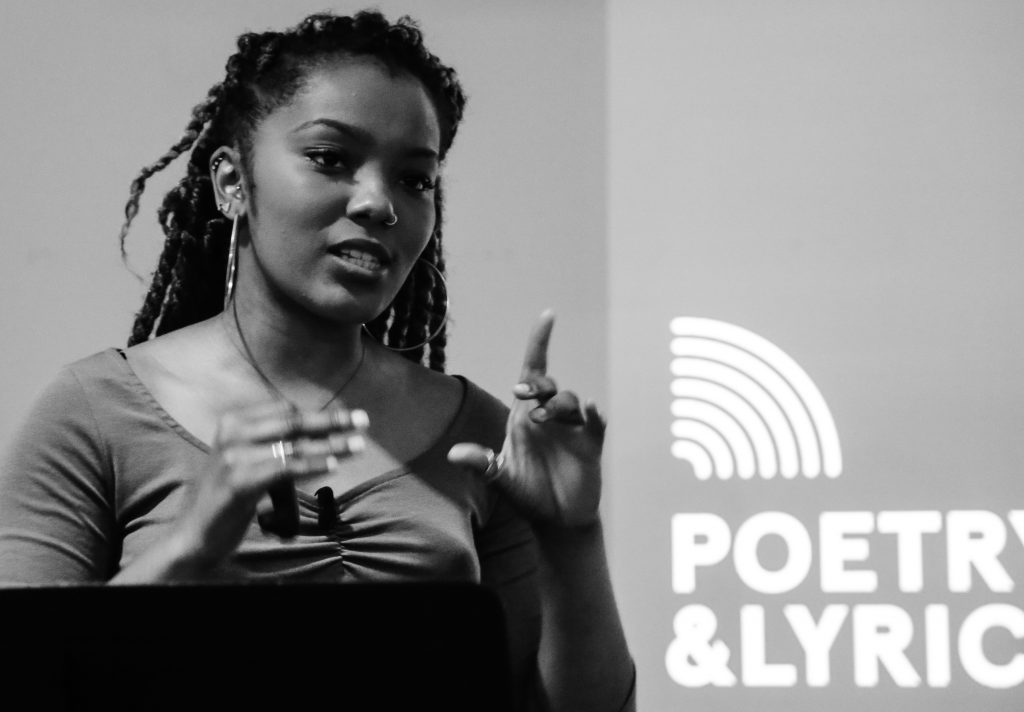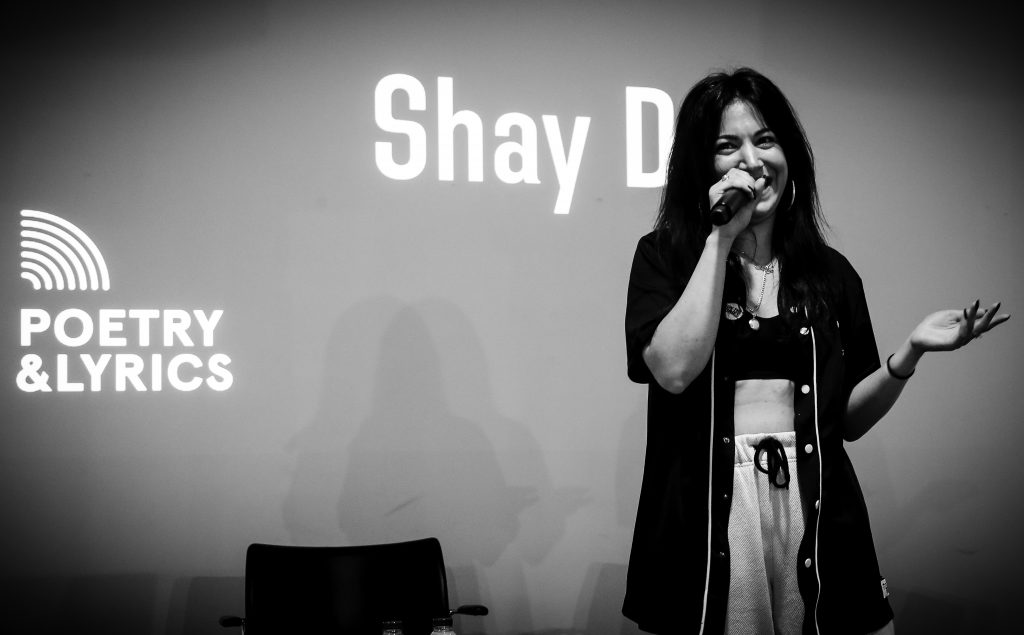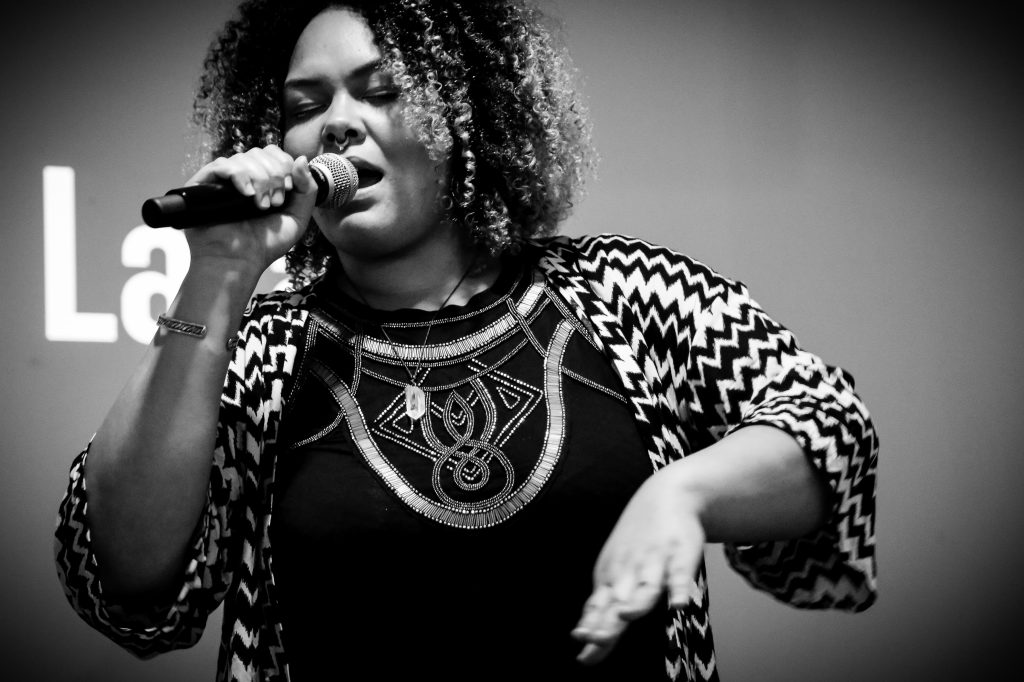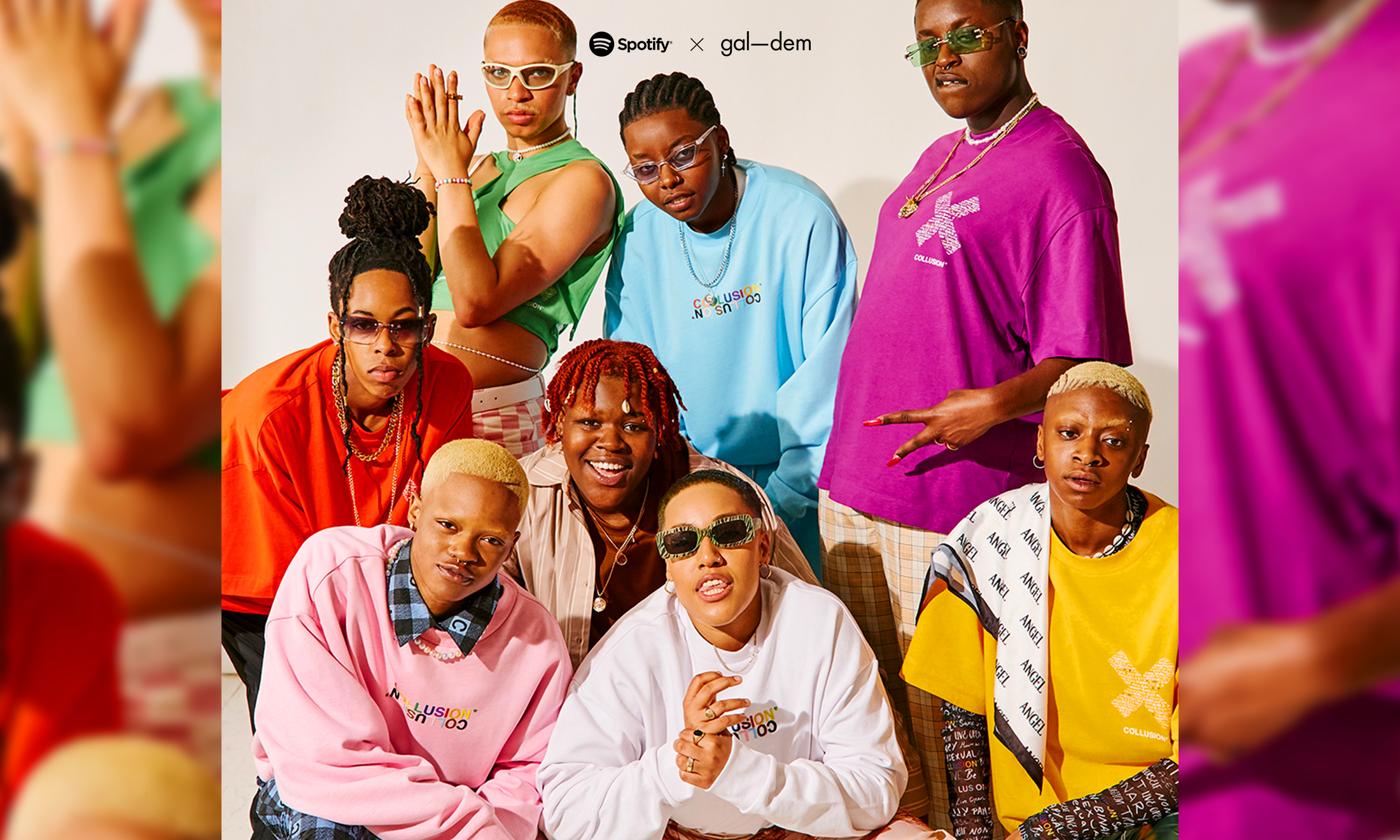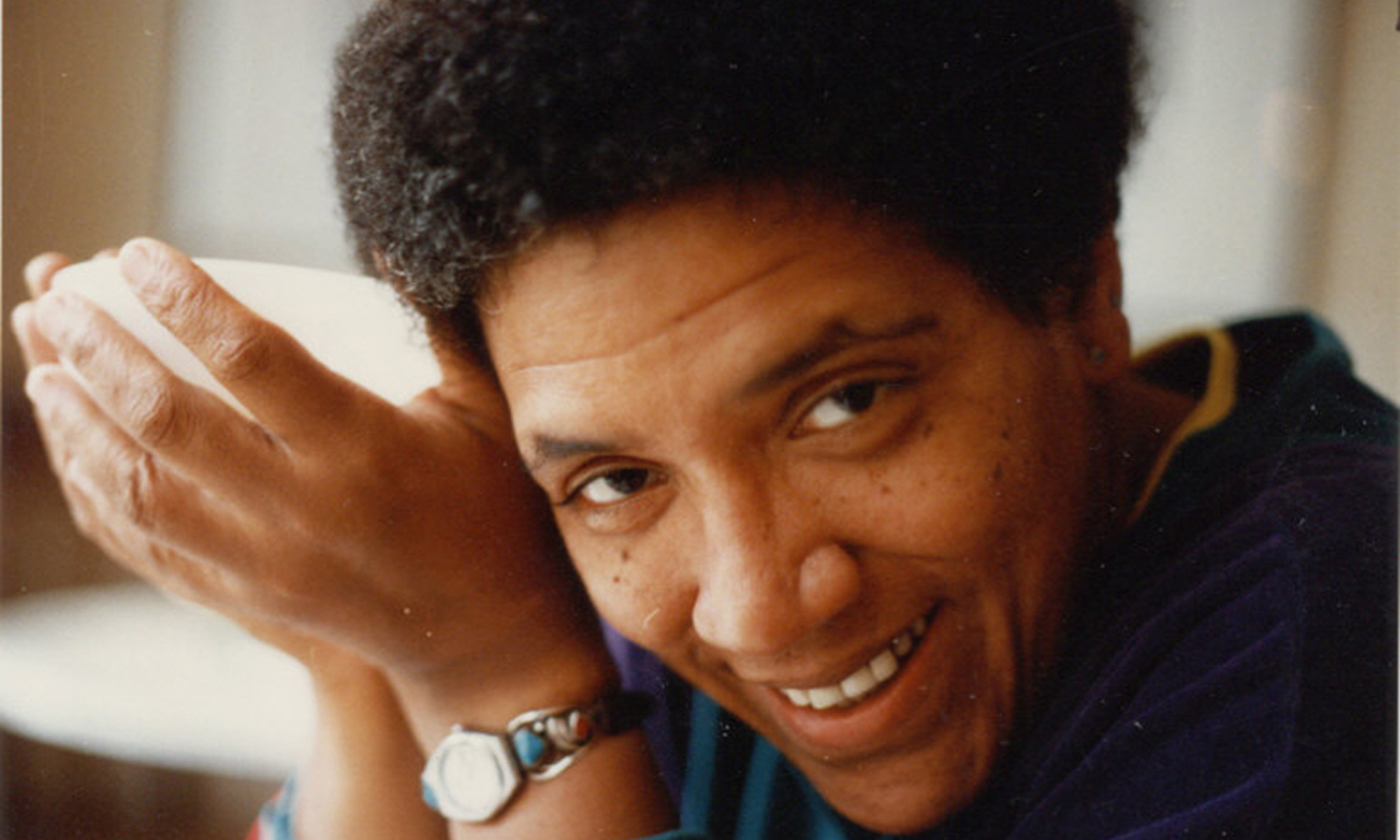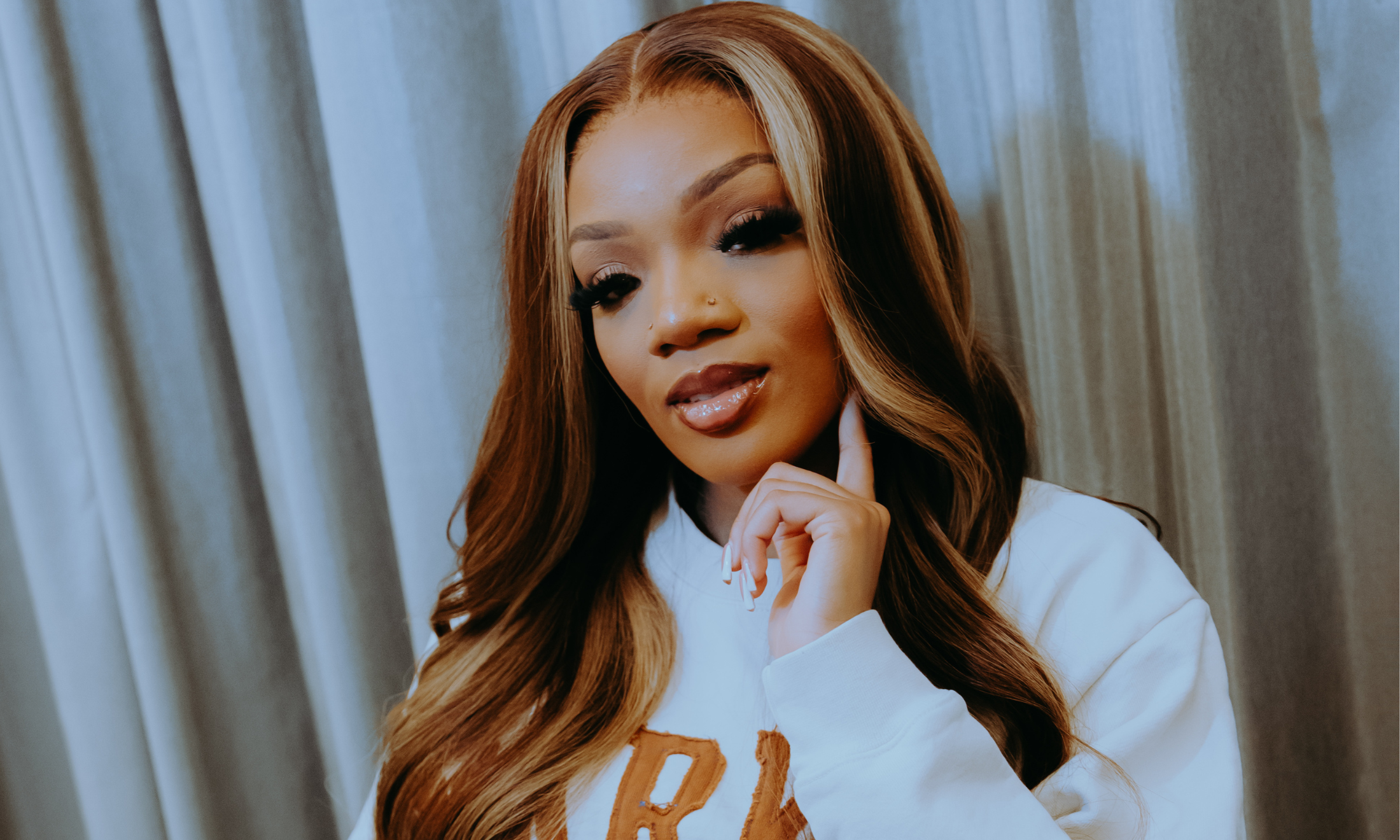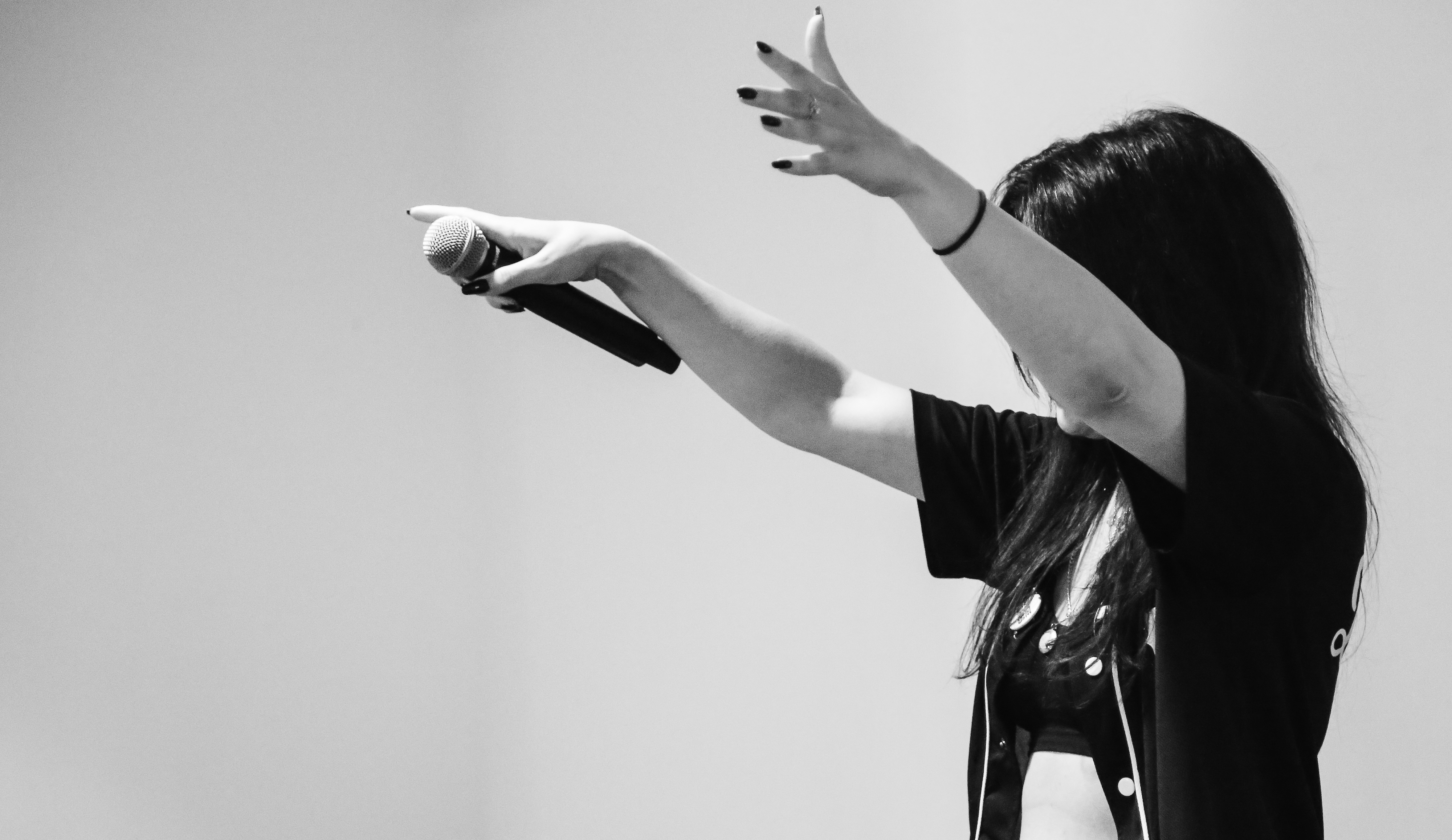
Meet the lyricists behind Still I Rise: the poetry event creating social change
Georgia Bowen-Evans
29 Jul 2017
Out of the huts of floating ideas on identity and artistic expression in London, sprung Still I Rise Hip Hop, Feminism & Poetry , an event curated by Poet in the City Producers, an 18-strong team of 17-25 year olds. Rhea, who is part of the live events producers team, gave me some insight on the team’s vision for this event. “We were thinking about the stories that are important to us and that we want to tell. We all had a similar vision of what we wanted this event to be and it turned out really well”. As part of the Poetry & Lyrics Festival, founded by Poet in the City, Still I Rise was just one of a few events that are creating a wave around social change.
The name of this event, jointly referencing Maya Angelou and Nicki Minaj, represents the direction that feminism and hip hop are destined to take, together. The spotlight was on the work of three artists: Rasheeda Page-Muir, Shay D and Floetic Lara, as they bared their souls to an audience aching for some relief from a city descending into chaos. gal-dem caught up with them to find out more about their backgrounds and the role in which feminism, hip hop and poetry plays in their lives.
“My background is in Sociology and so I became aware of how people are socialised. Reading about a lot of black feminists such as Patricia Collins, Toni Morrison and Alice Walker, I saw the negative light that the male figures in their lives are represented as, because that was their experience with men”. – Rasheeda Page-Muir
Rasheeda Page-Muir
19 year-old Rasheeda is a presenter whose focus on the evening, was on redefining the relationship between feminism and hip hop. Her flow is not solely dependant on rhyme, yet it still holds the flawless and familiar rhythm of spoken word. Throughout her performance, Rasheeda reminisced on the feminist renditions of bedtime stories she was read as a child, growing up in a house full of women. Her radical feminist views have also been shaped through academia. She tells me that her “background is in Sociology and so I became aware of how people are socialised. Reading about a lot of black feminists such as Patricia Collins, Toni Morrison and Alice Walker, I saw the negative light that the male figures in their lives are represented as, because that was their experience with men”.
As well as presenting a TEDtalk earlier this year, Rasheeda is currently running a youth organisation, RevolYOUtion London, which provides a physical debate platform for 14-25 year olds. “It is so important for young people to come together and use their power and resources to make change. A lot of the popular discourse comes from the people who are older, who look back and reflect on the times, but not many physical environments are conducive to young people doing that”.
“…hip hop is our freedom – we are the revolution!” – Shay D
Shay D
Next up was Shay D, an Iranian rapper from North London. She expressed that she sees hip hop as a method of freedom, and invited the audience in on her mantra “hip hop is our freedom – we are the revolution!”. She began writing bars as a form of therapy whilst growing up, as she reveals, “I had a lot of repressed anger, I was getting kicked out of classes at my school and for me, writing felt like a release. The boys at my school started emceeing to Garage and Grime [instrumentals] and I wanted to prove myself, being the only girl who does it so I went in and wrote some bars. Since then, I’ve done MC competitions, rap workshops and I also run a hip hop night called Word on the Street.”
Whilst speaking on gentrification, Shay D explained the inspiration behind her piece titled ‘Not the Chicken Shop Man’, after being pushed out of her family home due to privatisation in their area; one of her students had an angry outburst at a chicken shop man, complaining that he received the wrong meal. Shay D is currently touring her album Figure of Speech, which she performed at Glastonbury this year.
Floetic Lara
Last but not least to take the stage, was Floetic Lara: a poet, singer and songwriter. She is zen personified, so I am not surprised when after the show she tells me she founded an aromatherapy business, “…we do jewellery, cushions and skincare. As an artist, I’ve branched into a few things because it fuses into one representation of who I am”. Her first song, ‘Just Let it Flow’ sounds exactly as it says, her voice effortlessly winds through the music, channeling sounds reminiscent of Lauryn Hill and Sade.
“Lara is keen tell me that as female spoken word artist, people always expect her to be on the tip of revolution, of strength and be ‘the backbone of the home'”
Lara is keen tell me that as female spoken word artist, people always expect her to be on the tip of revolution, of strength and be “the backbone of the home”. Instead of always being on the defence, she reminds us that words can also be healing with her next piece ‘Freedom Shouts’, which looks at the different forms women’s expression can take.
“We can’t forget that rap and poetry are one and the same when we talk of the roots and influence of rap. The power of spoken word and the power of the tongue is reaching people in different ways, helping them to visualise what someone else’s experience of life is through speech”
Still I Rise reached its peak with a Q&A session aimed to piece together possible definitions of feminism and its place in hip hop and poetry. Floetic Lara commented, “We can’t forget that rap and poetry are one and the same when we talk of the roots and influence of rap. The power of spoken word and the power of the tongue is reaching people in different ways, helping them to visualise what someone else’s experience of life is through speech”.
Rasheeda is at the forefront of radical feminism and taking steps to eradicate the patriarchy, she believes that “there is a hyper-masculine form so often displayed in hip hop, but it is only representative of one language that hip hop speaks. If we join feminism and hip hop, we can start to heal the patriarchal society.
Shay D believes that effective socio-political change comes down to the power of influence, “I’ve said for years that emcees and rappers are way more influential than any politician. That’s why that Grime for Corbyn worked, they allied with them to get people involved. I don’t want to label it as conscious but hip hop has always stemmed from social and political roots. We gave birth to Grime in England and, it is moving in the same direction as hip hop did in America”.
As I reflect on the event, I sense a shift within my perception of the relationship between feminism, hip hop and poetry. This powerful trio has a huge amount of influence, and when put together can help us rise into a new realm of human experience. This event has by far secured its place among conversations that are shaping youth culture today. Above all, I quite readily accept that the definition of feminism is whichever version you need it to be; to see the destruction of patriarchal domination, creating a life where you feel empowered and confident or just in those small, quite, constant revolutions within yourself.
Poetry & Lyrics is an annual festival curated by Poet in the City, held at Kings Place in London. Click here to find out more about Poet in the City’s upcoming events.

